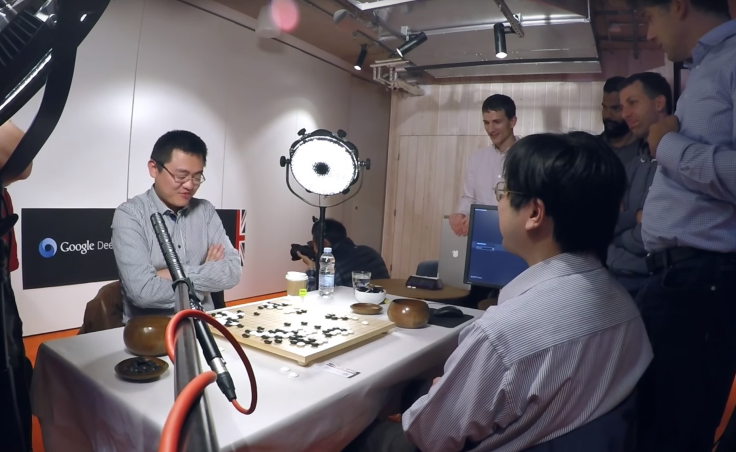DeepMind's AlphaGo Program Will Challenge Go World Champion Live On YouTube For $1M

Next month, one of the world's most advanced artificial intelligence (AI) programs will take on the world champion Go player in a series of five matches over seven days for a prize of $1 million in a contest designed to see which is better – man or machine.
DeepMind, the U.K.-based AI startup, which Google bought for over $580 million in 2014, has developed a system of neural networks designed specifically to play Go, the ancient Chinese board game, which has been notoriously difficult for machines to master.
The event was announced by Demis Hassabis, the founder of DeepMind, who revealed that the company's AlphaGo AI program would challenge the world's number one player Lee Sedol over a series of five games in Seoul beginning on March 9, all of which will be livestreamed on YouTube.
"It is a real privilege and honor to be playing the greatest Go player of the past decade, and a legend of the game," Hassabis said on Twitter. Sodel, for his part, doesn't seem overly concerned. "I have heard that Google DeepMind’s AI is surprisingly strong and getting stronger, but I am confident that I can win at least this time," the Go champion said in a statement to VentureBeat.
Last week, AlphaGo and DeepMind made international headlines after the program beaten a human opponent, with many calling it a landmark in AI development. While it was certainly a significant milestone, it was not as big as some would have you believe.
Reports claimed AlphaGo had been the "Go champion" but the reality was that it had beaten Fan Hui, the European champion. While this is in itself a major achievement, Go is not a major sport in Europe and Hui is ranked 663 in the world. According to one online discussions, that would mean AlphaGo is currently ranked the number 279 Go player in the world.
While the achievement of AlphaGo is certainly impressive, the challenge for DeepMind – and all AI companies – is whether they can translate success in very specific tasks like playing Go into real world situations. "AI in the real world is still pretty hard," AI expert Gary Marcus said recently. "The money question – which nobody yet knows the answer to – is whether passing Go will get us there sooner."
© Copyright IBTimes 2025. All rights reserved.




















